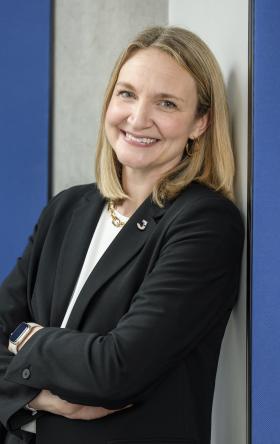




As a purpose-led company, we know we have a pivotal role to play in addressing the climate emergency. We consider this not only good business, but our duty to channel our technology-enabled expertise and capabilities toward benefitting people and the planet.



We work in partnership, delivering some of the most challenging, diverse and innovative projects and programs globally across multiple sectors. We integrate complex interfaces across planning, procurement and delivery to help unlock better social, environmental and economic outcomes from mega and giga projects.



For more than 30 years, Jacobs has been responsible for planning and implementing Lead and Copper Rule-related strategies which protect millions of people in the U.S. and Canada. Our work includes enhanced water quality monitoring strategies, sampling plan development, harvested pipe-scale analysis, lead service line inventories and replacement plans, corrosion control studies and the incorporation of equity and environmental justice considerations into compliance programs.



As our clients navigate the digital transformation and growing cyber risks, we have positioned ourselves at the forefront of this growth, adding digital capabilities, products and tools to serve a growing set of customers.



Sit down with our visionary team of thinkers, dreamers and doers to see what a day in the life is like.



A curated selection of some of the top-listened to and trending podcast episodes from our popular If/When podcast series, which has over 7M downloads to date.



Together with our visionary partner, PA Consulting, we're establishing our position in high end advisory services, creating a springboard to expand in high value offerings beyond the core.


At Jacobs, we're challenging today to reinvent tomorrow by solving the world's most critical problems for thriving cities, resilient environments, mission-critical outcomes, operational advancement, scientific discovery and cutting-edge manufacturing, turning abstract ideas into realities that transform the world for good. With approximately $16 billion in annual revenue and a talent force of more than 60,000, Jacobs provides a full spectrum of professional services including consulting, technical, scientific and project delivery for the government and private sector.



Jacobs. A world where you can.



As climate change threatens water security around the world, more communities are turning to water reuse as a resilient water supply solution and embracing the OneWater principle that all water has value. Jacobs has been supporting clients with water reuse programs for decades, beginning with the first applications of advanced wastewater treatment technologies in the 1960s. We provide our clients with a full range of services, from water reuse feasibility studies to design, construction and operations.



The only certainty about the future is uncertainty. Resilience is an attribute of a smarter planet, and requires planning and adapting ahead of potential threats. We help our clients survive, recover, adapt and thrive.



Jacobs is working to help clients across the United States secure federal funding for projects that make our cities and communities more connected and sustainable. Working hand-in-hand with clients from coast to coast and everywhere in between, Jacobs develops bold, innovative solutions to address the nation’s toughest challenges.



Now more than ever, we appreciate the hard work, sacrifice and dedication of the medical profession in ensuring the health and safety of our communities.



Together, we are stronger. Together, we can transform the future.



We’ve provided design-build services to the water sector for over 25 years and delivered more than 150 projects. We offer fully integrated design-build and design-build-operate capabilities to tackle the most complex water challenges and work in close collaboration with our clients.



Stories that capture our partnerships and innovative impact for a more connected, sustainable world



Whether you root for the Atlanta Falcons, Green Bay Packers or the New England Patriots – if your Sunday (or Thursday or Monday night) routine revolves around America's National Football League (NFL) games, your household is one of the 15 million that tune in each week during the NFL season.
Every day in the United States, non-revenue water – including water “lost” through theft or inaccurate metering – represents enough clean, treated drinking water to serve those 15 million households, a whopping 6 billion gallons per day according to the American Society of Civil Engineers.
This lost water is called non-revenue water because water utilities are making no revenue from it – and it’s a problem facing utilities around the globe. Worldwide, utilities lose approximately $14 billion every year due to non-revenue water.
But what if we showed you how advanced Internet of Things (IoT) sensors and real-time analytics – deployed on one utility’s Jacobs-supported pilot – might help others reduce water loss and deliver savings in energy and cost?
ultrasonic, smart meters providing real-time water usage and system performance data
cellular service reliability with zero downtime
“Using cellular technologies is an innovative approach to managing non-revenue water, which has traditionally been managed through pipeline leak detection programs. Demonstrating new technologies to get real-time data in Gwinnett County’s water distribution system is providing a model approach for utilities worldwide to significantly reduce water loss and achieve economic and environmental benefits.”
Ken Thompson
Jacobs Global IoT/Smart Sensors Technology Leader
Approximately 30 miles northeast of Atlanta, sits Gwinnett County, Georgia. One of America’s fastest growing counties, this thriving population of more than 900,000 people receives drinking water from more than 3,700 miles of distribution pipe and 250,000 service connections.
Compared to global averages of 30 percent water loss annually and some utilities reporting losses of up to 70 percent, Gwinnett County’s current water loss rate doesn’t appear to be much of a problem, at about 10% annually. The amount of water that customers often unknowingly waste is unknown, but an important factor for the County to understand about its community.
Ahead of the uncertain water future facing us all, Gwinnett County Department of Water Resources (DWR) decided to get proactive by partnering with Jacobs and telecommunication firms, AT&T and QualComm, on a pilot study to improve management of its water resources using smart meters, pressure sensors and advanced data analytics.
With a goal to reduce water loss by up to 50%, while also facilitating earlier detection of issues in the public system, the pilot program also focused on identifying causes behind DWR’s non-revenue water loss – whether they be pipeline breaks or leaks, bad meters or theft.
As part of the pilot, DWR replaced water meters at 504 homes with a state-of-the-art water meter that collects and relays real-time data about water consumption.
These smart meters sent information automatically and wirelessly to DWR through a secure network on a regular basis, allowing the utility to track water as it moved through the system, detect leaks or other problems and respond quickly to issues.
The largest pilot of its type using new ultrasonic meters connected to AT&T’s LTE network, the pilot included 450 Neptune meters and 50 traditional positive displacement meters (Badger and Neptune). The ultrasonic meter utilized is so sensitive it can measure tampering or if someone tries to move a meter and can even detect leaks and reverse flows on the customer side.
The smart meter technology implemented in the pilot study is already helping DWR become more efficient and proactive in protecting their water distribution system.
In fact, the pilot helped identify plumbing issues at 30 residences that would have caused a loss of 4.8 million gallons of water annually – enough to serve 44 households – if not fixed. Boasting 100 percent reliability with zero cellular chip failures over 12 months of the study, the meters also provided real-time identification of an improper valve opening incident and three minor reverse flow incidents associated with hot water heater expansion.
Using pressure reduction, the pilot team continued optimizing the system and has shared its successes with other utilities looking to address non-revenue water challenges. Additionally, Jacobs worked with DWR and the U.S. Environmental Protection Agency Water Security Division to develop national protocols for utility response to meter tampering and reverse flow events, helping improve security and resiliency across the industry.
Image credit: Gwinnett County Department of Water Resources